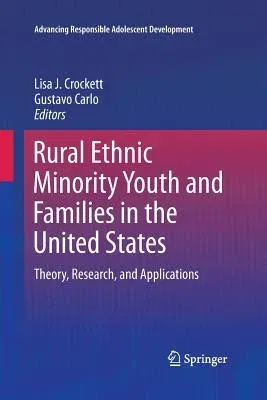Rural Ethnic Minority Youth and Families in the United States: Theory, Research, and Applications (Softcover Reprint of the Original 1st 2016)Paperback - Softcover Reprint of the Original 1st 2016, 23 August 2016

Qty
1
Turbo
Ships in 2 - 3 days
In Stock
Free Delivery
Cash on Delivery
15 Days
Free Returns
Secure Checkout

Part of Series
Advancing Responsible Adolescent Development
Print Length
297 pages
Language
English
Publisher
Springer
Date Published
23 Aug 2016
ISBN-10
3319371517
ISBN-13
9783319371511
Description
Product Details
Book Edition:
Softcover Reprint of the Original 1st 2016
Book Format:
Paperback
Country of Origin:
NL
Date Published:
23 August 2016
Dimensions:
23.39 x
15.6 x
1.68 cm
ISBN-10:
3319371517
ISBN-13:
9783319371511
Language:
English
Location:
Cham
Pages:
297
Publisher:
Weight:
444.52 gm